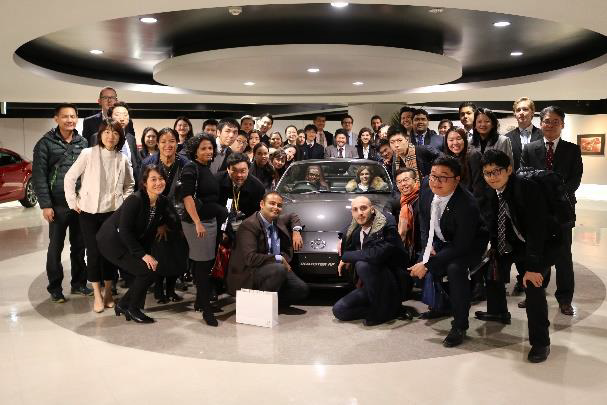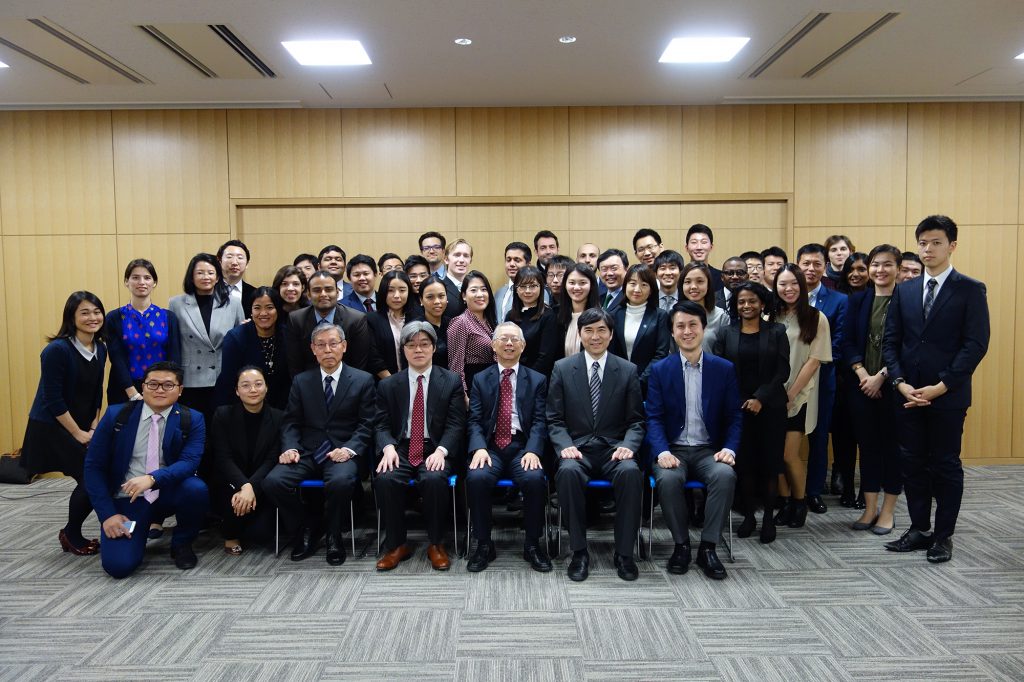I was pleased to join the Japan Study Trip with wonderful students from LKY and the University of Tokyo. Even as a Japanese, it was a great opportunity to explore Kyoto, Hiroshima and Kamakura, where I have not visited before.
My experiences in this trip are three-fold. First, joining a workshop and tour in Kyoto, I found that interaction with local people made tourists more satisfied with their trips. In Kyoto, I joined two workshops of green tea in a well-known matcha company and enjoyed different kinds of green tea. Then, I visited a Japanese sake museum managed by a famous Japanese sake company. These visits became special for me, thanks to wonderful tour guides and their lectures. In contrast, in Miyajima, Hiroshima prefecture, I explored the island by myself. Of course, I enjoyed the beautiful landscape and its food, but it was difficult for me to deepen my understanding of its history and its special culture without any tour guides and their explanations. This experience made me think that experience through tours and workshops would have a key role in raising the satisfaction of tourism in Japan.
Second, I was impressed by the continuous dialogue with LKY students. While heading to meetings, I had some chances to talk with LKY students who have various backgrounds. I was usually surrounded by graduate students who do not have working experiences at the University of Tokyo, so it was great to discuss current policies and their home countries with students who had worked for the governments before. I was glad to have such friendly participants from LKY.
Third, I would like to address one potential improvement for the next trip: I wish I could talk with local people about public policies for tourism. Although I had wonderful opportunities to talk with public officials from local governments during this trip, I could not have any chances to hear how actually local people have responded to the policies. Since local people are the main actors in improving tourism or promoting any economic activities, it would have been better to have key persons from the private sector when we had a discussion about tourism or the economy.
Although it was just an eight-day trip, it was meaningful and memorable for me. Thank you so much for organizing this trip, and I hope I can see wonderful participants soon again.
Hidemi Nishio
For the students of the Lee Kuan Yew School of Public Policy, this year marked the eighth edition of the Japan study trip.
I had the opportunity to be part of the organizing team that joined the group on their itinerary from Kyoto, to Hiroshima and Miyajima, to Kamakura and to Tokyo. From the first meeting, our group felt very welcome in the group of LKYSPP students, and we could easily strike up interesting conversations on the differences between living in Tokyo and Singapore with the students and faculty. Our first stop was Kyoto University, where students of the university led us to meet the dean of the Kyoto School of Government. It was very interesting to have discussions between students of these three policy schools in Tokyo, Kyoto, and Singapore. The trip was well-balanced between official meetings and casual activities that allowed everyone to enjoy various aspects of Japanese culture. For example, we had the opportunity in Kyoto to experience Zazen meditation at Myoshin-ji with the monk Matsuyama Daiko, who explained to us some of the precepts that underpin Buddhist philosophy. These visits were key for Singapore students to understand not only the business and administrative structure of Japanese institutions but also the cultural framework in which these institutions have developed.
After Kyoto, our group continued the journey to Miyajima, where everyone was in admiration of the beautiful temples and shrines. The following day was spent in Hiroshima, where we visited the Atomic bomb dome and the Peace Memorial Park. This was directly followed by a presentation by Hiroshima city officials, where the major topic of discussion was peace tourism and how to increase the profit of this industry in Hiroshima. The presentation was followed by an active discussion where the students of LKYSPP had a fruitful exchange with the city officials.
Our last afternoon in Hiroshima was spent at the Mazda factory, where we had the chance to meet Mazda executives and learn more about the company. Visiting their museum and assembly line was an impressive experience for most students, especially when it came to understanding better the technological advancements that allowed the company to stay innovative and productive through the years. As students of Tokyo University, we learned a lot also through these visits, but also simply by interacting with international students studying in Singapore and by seeing Japan through their eyes, listening to their questions about the industrial, cultural, or security policies of Japan.
Before making our way back to Tokyo, we stopped in Kamakura where the students again had the chance to see some of the cultural wonders of Japan, and relax while enjoying Japanese sweets. The last past of the trip was composed of very informative visits to the Keidanren, to Tokyo University, and to the Ministry of Economy, Trade, and Industry. In the latter, Mr. Asano Daisuke, who is an alumni of LKY and the founder of this study trip, gave us a presentation on the educational reforms that he is overseeing and that will start taking place in Japan soon. It was a fascinating presentation and discussion that left me a lasting impression.
The whole experience was concluded by the GraSPP day, where we witnessed the students of the LKYSPP give insightful presentations on the industrial, security, and cultural policy of Japan. This was followed by discussions and was an excellent opportunity for all of us to reflect upon the whole trip and what we had learned. I thoroughly enjoyed my time on this trip and am very thankful to the Graduate School of Public Policy at Tokyo University and the LKY School of Public Policy and their students for making it possible.
Sophie Bisping
Tokyo University, GraSPP MPP/IP Exchange Student



